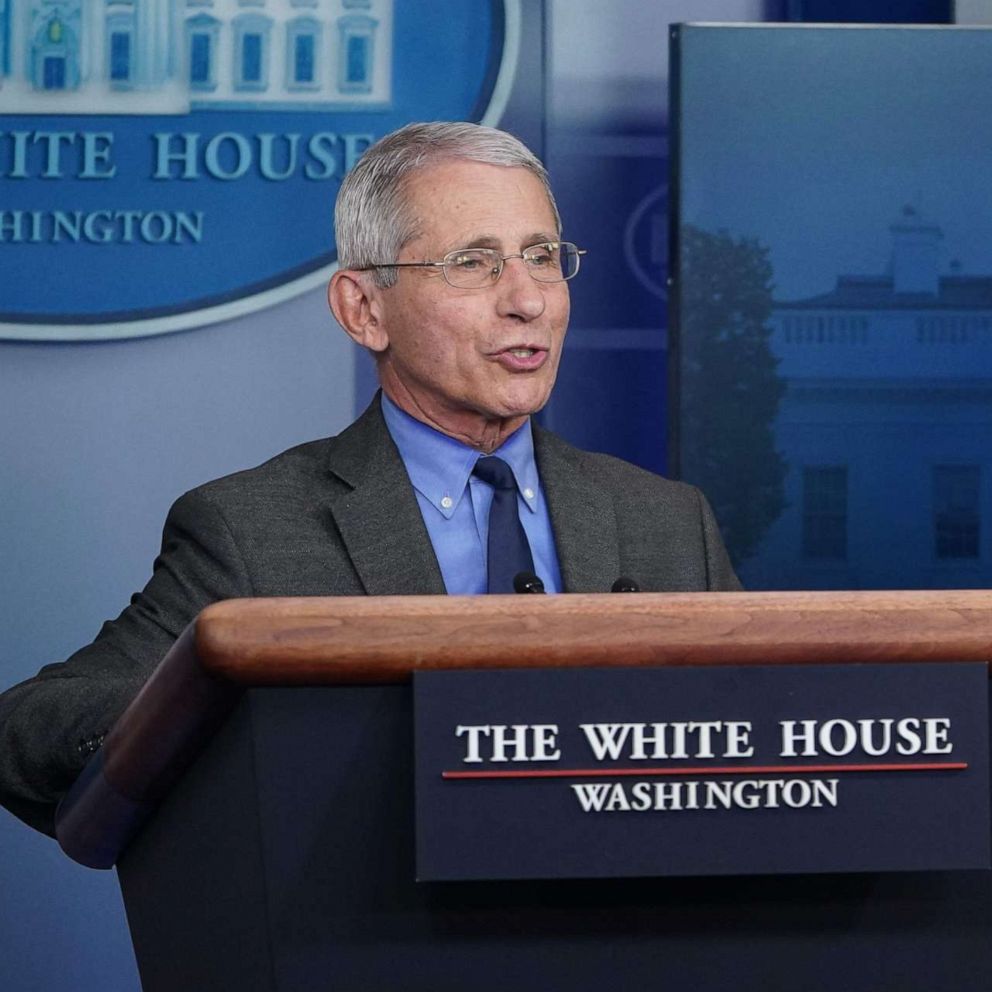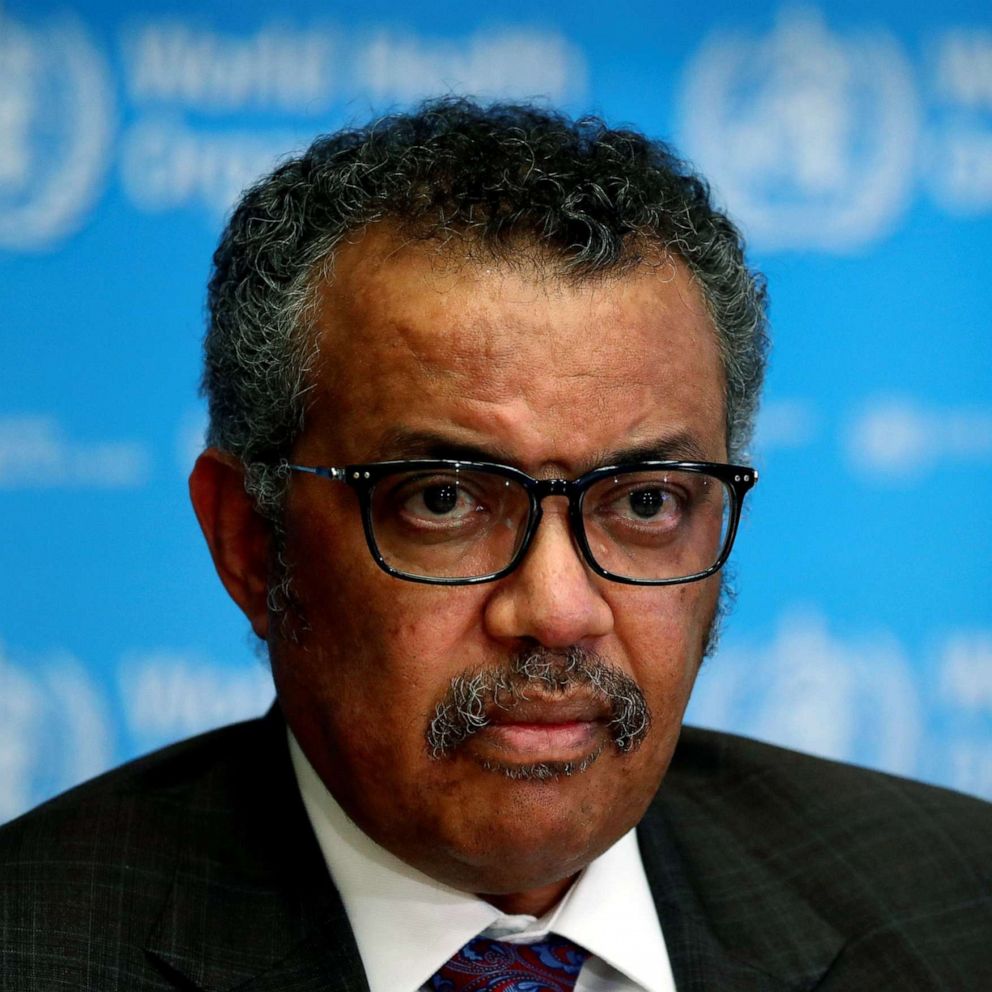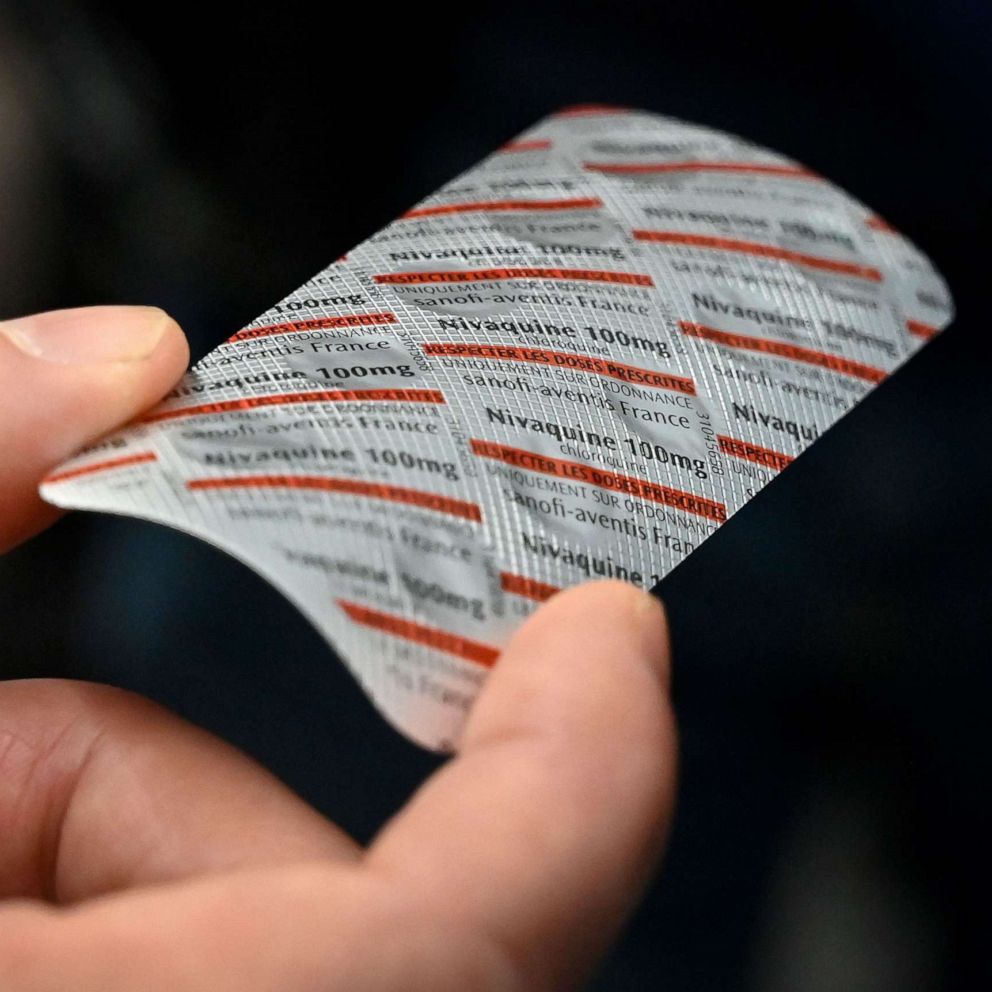Head of vaccine development alleges 'cronyism' after being removed from post
Rick Bright claims he's being "sidelined" amid pandemic.
The head of the federal agency charged with overseeing the rapid production of a vaccine to fight the novel coronavirus pandemic said Wednesday he was removed from his post after trying to push back against what he called "cronyism" infecting the federal effort.
Dr. Rick Bright said he was transferred "in response to my insistence that the government invest the billions of dollars allocated by Congress to address the COVID-19 pandemic into safe and scientifically vetted solutions, and not in drugs, vaccines and other technologies that lack scientific merit."
"I am speaking out because to combat this deadly virus, science -- not politics or cronyism -- has to lead the way," Bright said in a statement that came less than 24 hours after the Department of Health and Human Services circulated an internal memo, reviewed by ABC News, saying he had been promoted to a position in another agency. "Sidelining me in the middle of this pandemic and placing politics and cronyism ahead of science puts lives at risk and stunts national efforts to safely and effectively address this urgent public health crisis."
The White House declined to comment for this report, but President Donald Trump said Wednesday that he had "never heard" of Bright.
"The guy says he was pushed out of a job. Maybe he was. Maybe he wasn't. You'd have to hear the other side. I don't know who he is," the president said at his daily press briefing.
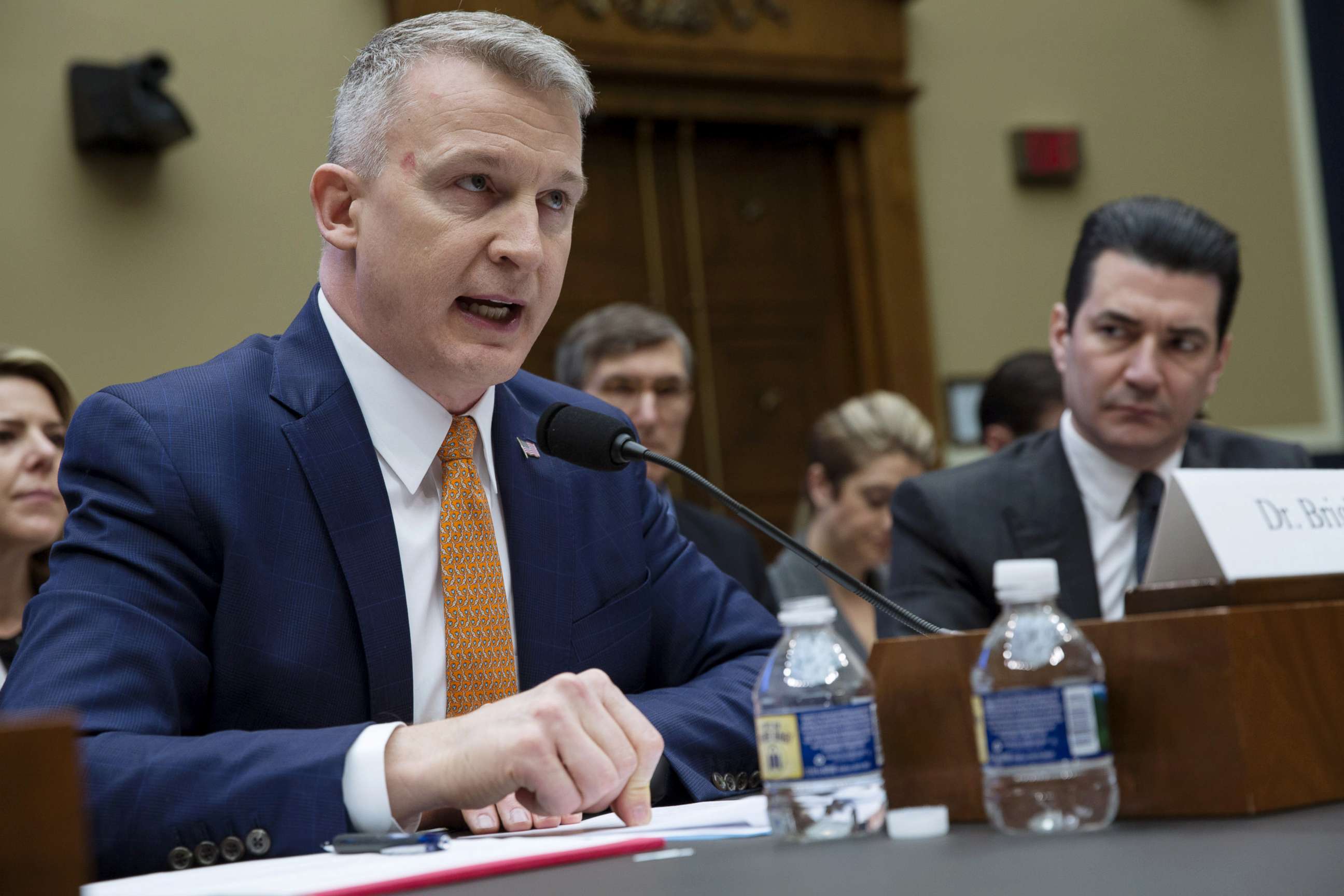
Thursday lawyers for Bright said "soon" they would be filing a whistle-blower complaint "detailing the retaliatory treatment to which he was subjected by HHS political leadership after raising appropriate science-based concerns about White House pressure on treatment and vaccines related to the COVID-19 pandemic."
Bright had been in charge of the Biomedical Advanced Research and Development Authority, known as BARDA, which recently received more than $3 billion in federal funds to help ramp up production capacity so that any discovery of a coronavirus vaccine can be quickly manufactured and distributed to hundreds of millions of Americans. His removal from the post stunned lawmakers who had been pushing for a more robust vaccine effort.
"We need to be listening to experts and science, not pushing them aside," Sen. Patty Murray, D-Wash., wrote on Twitter following news reports regarding Bright's statement. "A global pandemic is not the time to shuffle personnel, or contradict and remove experts for wanting to do their job well. These reports are incredibly disturbing and I will be pushing for answers."
Bright will be moving to a position at the National Institutes of Health to lead a new initiative "to accelerate the development of Covid-19 vaccine and treatment options," said a spokesperson for Health and Human Services, which is BARDA's parent organization, prior to Bright's statement. Gary Disbrow, Bright’s current assistant secretary, will serve as the acting director of BARDA. In a follow-up statement, the HHS said at the NIH Bright would "work on development and deployment of novel point-of-care testing platforms."
An internal message announcing Bright’s departure reviewed by ABC News congratulated Bright on the new position.
"The President and the Secretary and Congress see this as an essential effort requiring the best effort and people this Nation has," the HHS email read. "One of our own has been tapped."
BARDA plays the crucial role of overseeing and investing in the development, manufacturing, purchasing and deployment of vaccines during the pandemic -- what experts say is the key to emerging from the coronavirus pandemic safely. The little-known agency is part of the Health and Human Services Office of the Assistant Secretary for Preparedness and Response.
As ABC News previously reported, medical experts and sources familiar with the organization have privately raised concerns about the agency. BARDA entered the pandemic crisis with a strategic plan that had not been updated since 2016, and medical experts have privately said more funding does not mean the agency will be able to catch up in time.
"Where has the investment been going for pandemic preparedness?" asked one infectious disease expert familiar with the agency's operations.
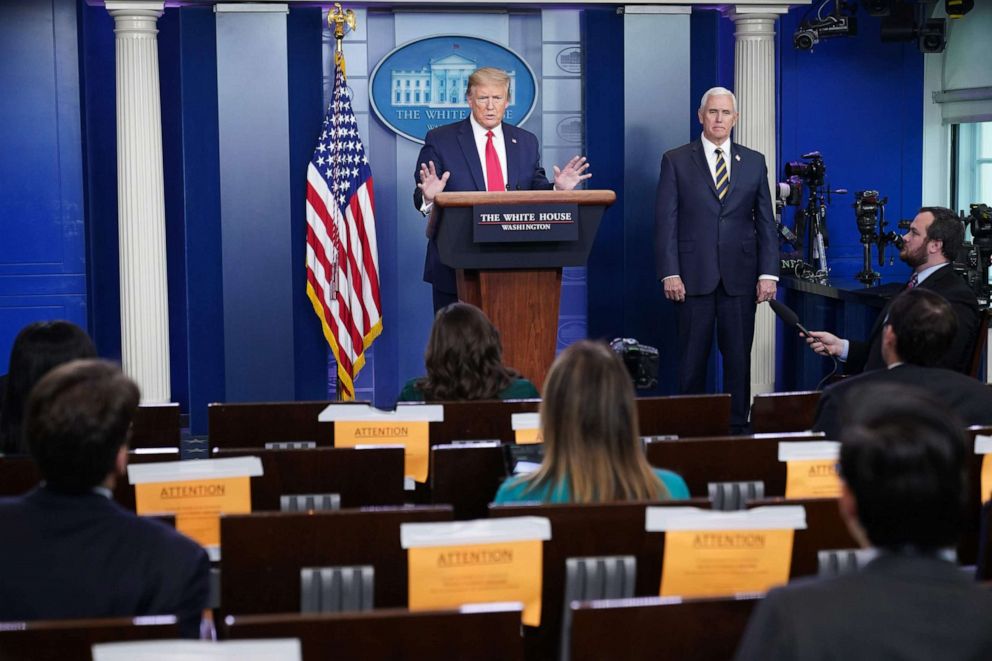
When asked for the agency’s updated plan last week, Bright told ABC News in a statement that the agency’s goals are "woven into the [2018] National Biodefense Strategy, the National Health Security Strategy and Implementation Plan, and the Public Health Medical Countermeasures Enterprise multi-year budget."
"Vaccine technology development and manufacturing initiatives begun 10 years ago and have continued towards national preparedness goals," Bright said at the time.
But this week, reports began to emerge of tensions between Bright and Dr. Robert Kadlec, the assistant secretary for Preparedness and Response at HHS. Sources told ABC News the two men sparred on some aspects of managing BARDA throughout the coronavirus pandemic. In recent weeks, the tensions boiled over, the sources said.
Bright’s statement Tuesday also painted a bleak picture of the weeks since the coronavirus outbreak began. In it, he said he was being handed "misguided directives" pushing the drugs chloroquine and hydroxychloroquine, which he said lacked scientific merit.
"While I am prepared to look at all options and to think ‘outside the box’ for effective treatments, I rightly resisted efforts to provide an unproven drug on demand to the American public," Bright said. "I insisted that these drugs be provided only to hospitalized patients with confirmed COVID-19 while under the supervision of a physician. These drugs have potentially serious risks associated with them, including increased mortality observed in some recent studies in patients with COVID-19."
Those drugs had been promoted heavily by Trump during his public appearances at the White House.
Earlier this month, Trump said at his daily briefing he though there were "some very strong, powerful signs" of the drug’s potential to fight coronavirus.
"If it does work, it would be a shame we did not do it early," he said. "We are sending them to various labs, our military, we’re sending them to the hospitals."
Late Wednesday, an HHS spokesperson said in a statement that it was Bright who requested the Food and Drug Administration give the drugs an Emergency Use Authorization. "The EUA is what made the donated product available for use in combating COVID-19," the spokesperson said.
Murray, among others in the Senate, recently raised concerns about political efforts to push unproven medical solutions. In a letter sent last week, the senior Democrat on the Senate’s Health Committee called on the FDA to "act with speed and flexibility in its response to this extraordinary public health crisis but must do so in a manner that upholds scientific integrity over political influence."
After Bright's statement, Sen. Ed Markey, D-Mass., called on the HHS inspector general to investigate what he called the "shocking and disturbing allegation" that Bright was removed for questioning and "resisting" Trump's promotion of the drugs.
In his statement, Bright himself asked the inspector general to "investigate the manner in which this administration has politicized the work of BARDA," among other allegations.
ABC News' Mike Levine contributed to this report.
This report was updated Thursday to include comment from Bright's attorneys concerning a potential whistle-blower complaint.
